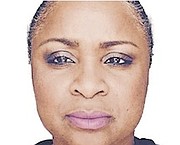By BETTYJOE COOPER
Most of us know how it feels after we’ve had a great night’s sleep. For me, the world becomes a better place and those first few breaths of fresh morning air are exhilarating. We sometimes deprive ourselves of this very basic need, and it’s not always intended. Our lives are full of distractions and these days smart devices may by the biggest culprits.
The National Sleep Foundation defines a good night’s sleep as follows:
You take an hour or less to fall asleep.
You wake up no more than once per night.
When you do wake up in the middle of the night, you fall back asleep within 20 minutes.
You’re asleep for at least 85 per cent of the time you spend in bed.
Based on the above parameters, there aren’t many of us that experience a good night’s sleep every night.
According to Dr Mark Muehlbach of the Clayton Sleep Institute, much of this sleep disruption is the result of a “go, go, go” society. People feel they have too much to do.
“What did people do before all this technology? They got more sleep! Now I think we’re sleeping less and we’re more tired during the day, so we have to drink more caffeine and energy drinks.”
At a more biological level, snoring can be a factor of disrupted sleep. Dr Michael Gelb of New York’s Gelb Centre specialises in sleep disorders related to blocked airflow. He blames the common, but rarely-discussed, issue of having a narrow airway.
Below, these two experts make recommendations on resetting your sleep environment. These proven strategies should help you achieve your “restful sleep goals” and wake up more invigorated.
Prepare your environment
Cut out the factors that keep us awake. Get rid of blue light before bedtime, generally emitted from anything with a screen such as a TV or smartphone. Also cut out natural light and external noise. I have used sleep masks and ear plugs, particularly if I’m trying to sleep on a flight. Temperature is also important.
“Having the room temperature somewhere between 65 and 68 is better than in the 70s because our body does tend to sleep better when it’s cooler,” says Dr Muehlbach. As well as a cool room, Dr Gelb suggests using a humidifier for better air quality, good sheets, and a pillow that props your head at a 45-degree angle.
Keep your nasal passage clear
“When a lot of people fall asleep they actually get even less oxygen than when they’re awake and as a result, have more disturbed sleep,” says Dr Gelb.
Blocked airways are “epigenetic” traits that are becoming more common due to environmental factors like pesticides, pollutants and preservatives. Having treated many clients with this condition, Dr Gelb recommends maintaining an open airflow with a device. One such new product is “Mute” which designed for insertion into both nostrils. The design makes them reusable. In contrast the “Breathe Right” strips stick to the outside of the nasal passage.
Maintain a regular sleep schedule
Keeping a steady sleep schedule is one way to go to bed earlier and wake up earlier. Even during the weekends when you may want to sleep in or go out partying. Dr Muehlbach recommends regular exercise to fall asleep faster. If you want to reset your body clock, take melatonin a few hours before you want to sleep until you’ve established the routine. Dr Gelb agrees, but cautions that melatonin should only be used for dealing with problems like jet lag and circadian rhythm disorder, but not for general insomnia.
Quiet restless thoughts
An over-active mind at bedtime can be a sleep deterrent. According to Dr Gelb, some people develop the anxiety due to a lack of oxygen (known as hypoxie). Chronic insomnia from breathing issues can cause people to develop a fear of choking while sleeping. Dr Muehlbach recommends winding down before bedtime without worrying about messages and tomorrow’s agenda. Beyond using aids like the Mute, he also suggests meditation and deep breathing exercises. The advice for those middle-of-the-night insomnia episodes might seem counterintuitive: “Get out of bed, do something really relaxing, and then get back into bed. You don’t want to spend a lot of time awake in bed because your body gets used to thinking the bed is there for lying awake,” says Dr Muehlbach.
Find the Goldilocks mattress
Finding the right mattress can be an arduous task. So, when you come to choosing one for yourself, think like Goldilocks did when she found herself sleepy in the three bears’ home.
I am in no way advocating porridge theft or disturbing a bear’s natural habitat. In fact, I am referring to a logical comparison when it came to the choice of bed in which she wanted to settle.
Goldilocks had a choice of three mattresses, and the twist in the tale came in that she chose the smallest and most intimate bed over the grand mattresses of the bigger bears. This shows that choosing a mattress is a very personal choice, and what may seem comfortable to some people may not be comfortable to you.
Both Drs Muehlbach and Gelb recommend beds where each person can control their angle of incline for improved airflow and back support. In other words, it’s about personalisation. As Dr Muehlbach says, “the best mattresses are the ones you feel the most comfortable on.”
Experts suggest that a medium-firm to firm mattress provides more support for your lower back. Using a bed frame with shorter legs and a solid foundation can make all the difference since it’s relatively noiseless and helps to distribute weight evenly.
• Bettyjoe Cooper is a self-published author and the founder of Brand New Mattress Co, a retailer of bedding products located in the Hummingbird Plaza, Coral Harbour Road, Nassau, Call 698 4609 for more information.





Comments
Use the comment form below to begin a discussion about this content.
Sign in to comment
OpenID